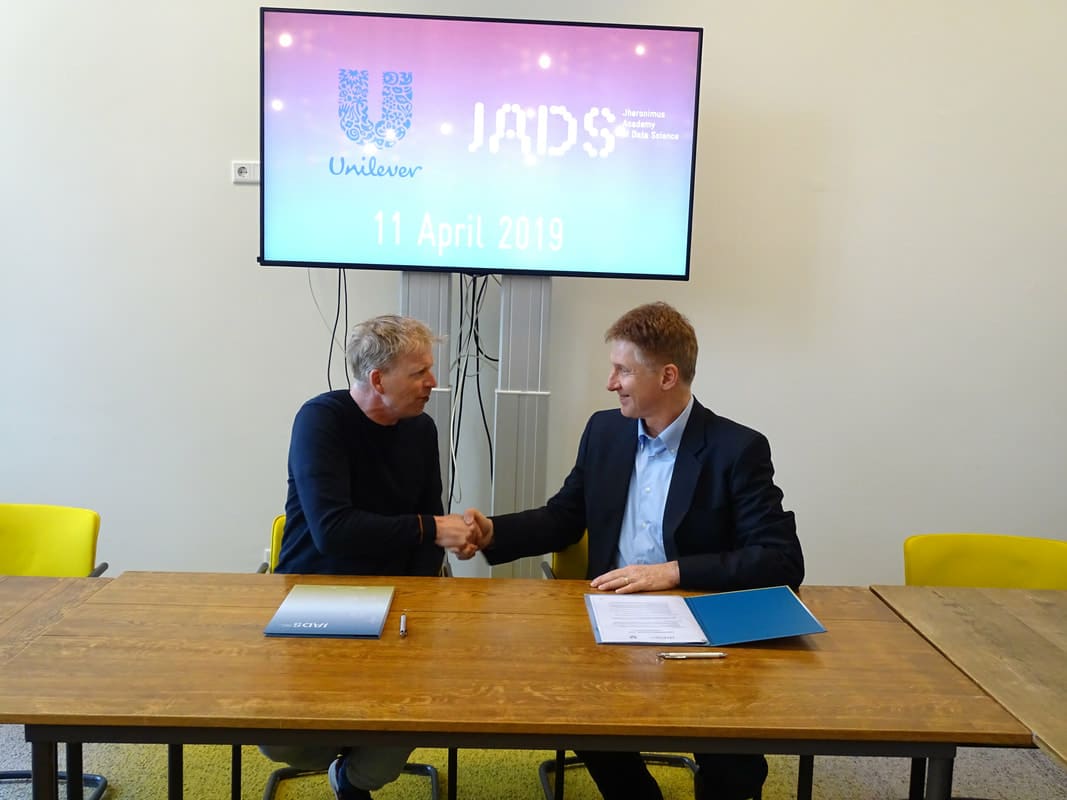Unilever Foods R&D and JADS sign a collaboration of intend to work together in the field of food and data science
Posted on
Unilever is constantly looking for new ways to speed up its innovation process and to serve consumers in a sustainable way. Digital transformation and insights from data play an increasingly important role in this. The Jheronimus Academy of Data Science (JADS) is involved in education and research in the field of data science and agri-food on a daily basis. The strategic agendas of Unilever and JADS therefore complement each other nicely and both parties are convinced that by working together a number of areas can contribute to a better future.
The collaboration gives Unilever Foods R&D access to all knowledge and talent within JADS in the field of data science. The collaboration with Unilever is interesting for JADS because it entails unique international domain knowledge, yields interesting datasets, creates opportunities for students and poses challenges for scientists.
From its mission, JADS strives for data-driven solutions for social and economic issues. Unilever is an important player in developing and rolling out solutions to a large number of important social challenges. In areas such as sustainability and reducing the environmental impact of food production systems, JADS scientists and students are happy to take on the challenge together with Unilever.
The collaboration has already been effective informally for some time. Soon after the foundation of JADS Den Bosch, a project was started from the PDEng (Professional Doctorate in Engineering) Data Science program and the Foods R&D team of Unilever in Vlaardingen. The small-scale, informal start has created a solid foundation for successful long-term cooperation, which is now being scaled up and intensified.
The first project that falls under the formal collaboration investigates the relationship between products and their experiences by consumers. This takes place through smart data combinations from different sources: data from the lab and feedback data from consumers.
By intensifying the cooperation, both parties will start to valorise data in more areas and combine data from more sources. Examples of other data sources are production data from factories, logistical movements, and purchase and sales flows.